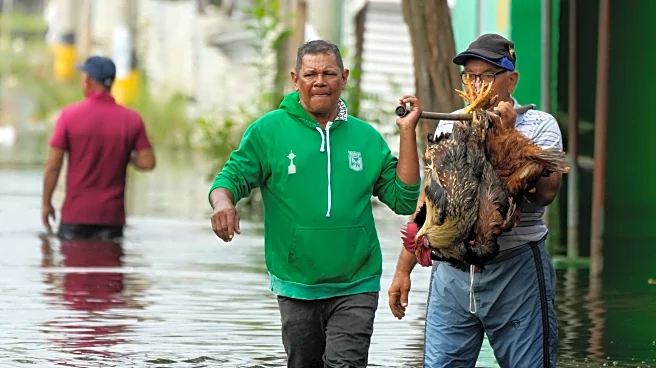Rapid Read • 8 min read
Twenty states and the District of Columbia have filed a lawsuit against the Trump administration's Justice Department, challenging new conditions imposed on federal grants for crime victim assistance. The lawsuit targets the Office for Victims of Crime, which distributes over $1 billion annually to states for programs supporting crime victims, including crisis counseling and emergency shelters. The Trump-era Justice Department added a requirement that denies funding to programs that violate federal immigration law, including those that do not cooperate with the Department of Homeland Security. The states argue that these conditions are illegal, as the original law establishing the grants does not mention immigration enforcement. The lawsuit seeks to block these rules, claiming they force states to choose between critical resources for crime victims and enforcing federal immigration laws.
AD
The lawsuit highlights the ongoing conflict between the Trump administration and states over immigration enforcement, particularly in sanctuary cities and states. The new grant conditions could significantly impact funding for programs that assist vulnerable crime victims, potentially leading to layoffs and the closure of essential services. States argue that these conditions undermine trust between law enforcement and immigrant communities, which is crucial for effective crime prevention and response. The outcome of this legal challenge could set a precedent for federal-state relations regarding immigration policy and funding allocations.
The states are seeking urgent relief from the federal court, as applications for most of the grants are due soon. A federal judge's decision on whether to block the new rules will be pivotal. If the court sides with the states, it could prevent the enforcement of these conditions and maintain funding for crime victim programs. Conversely, if the court upholds the conditions, states may need to adjust their policies to comply with federal immigration enforcement, potentially affecting their ability to support crime victims effectively.
This legal battle underscores broader ethical and legal questions about the federal government's use of funding as leverage to enforce immigration policies. It raises concerns about the balance of power between federal and state governments and the implications for civil rights and public safety. The case could influence future policy decisions and legal interpretations regarding the intersection of immigration enforcement and public welfare programs.
AD
More Stories You Might Enjoy












